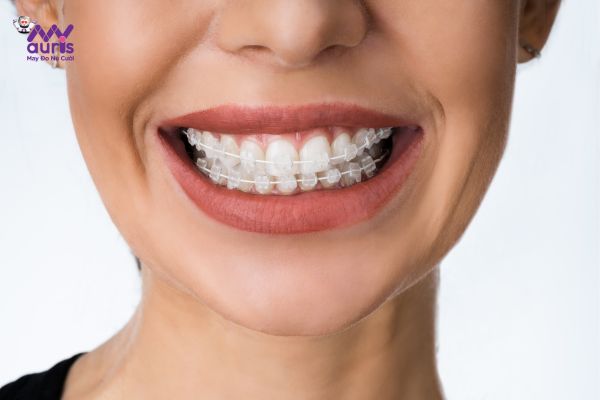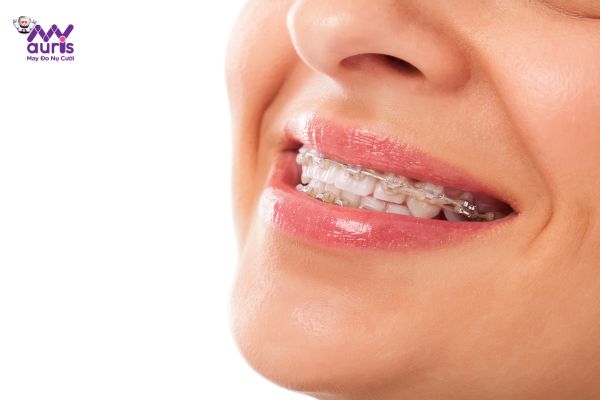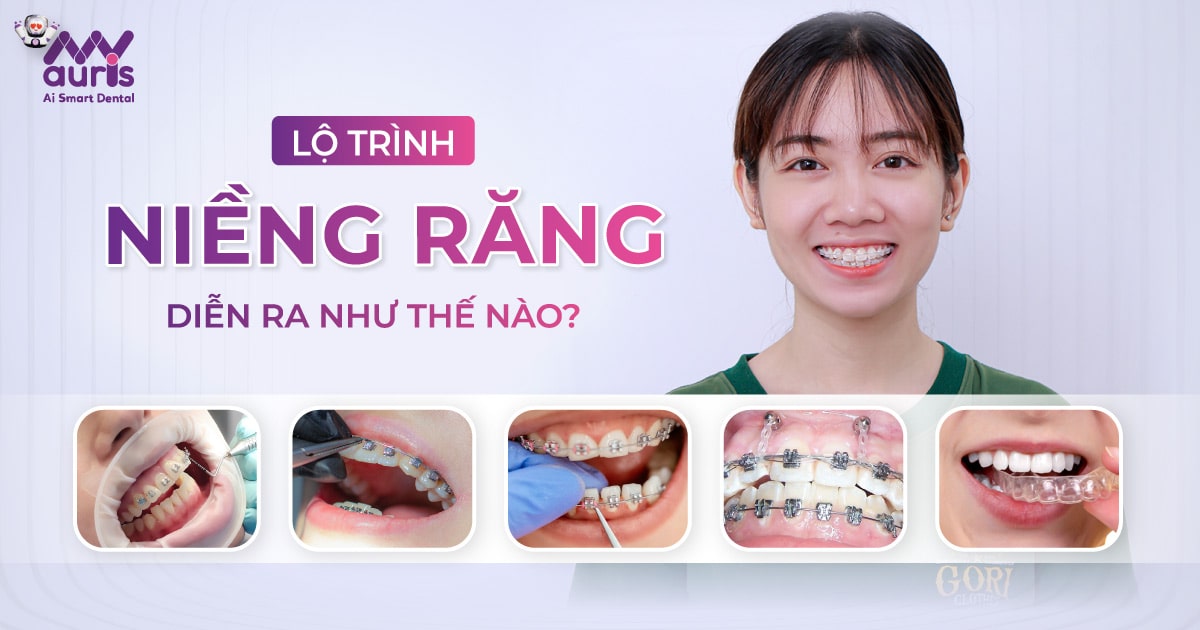The braces process takes a long time to arrange, evenly and balance the bite on the jaw. And the braces roadmap will take place in stages and standard steps. To better understand howthe braces process takes place, let’s find out with My Auris through the following article.
Stages in the braces roadmap
To have teeth spread evenly, align the bite and be in the correct position on the jaw, most people will have to go through the following steps: The stages in the braces roadmap are as follows:
Stage 1: Straighten teeth
This is the first stage in the orthodontics and braces roadmap. After planning the treatment regimen, the doctor will attach orthodontic appliances to the teeth. For braces, the doctor uses force to tighten the brackets and wires to create traction for the teeth to gradually move and align.
This stage lasts from 2-6 months. This time may be shorter depending on the condition of each person’s teeth. When the wire is tightened, the tooth will hurt for only the first 1-3 days and then gradually subside and return to normal.

Phase 2: Adjusting tooth roots
After the teeth have been aligned, the doctor will adjust the tooth root by using an arch wire to create force to move the tooth root. This stage lasts from 2-4 months and during this time the tooth pillars will be more accurately calibrated.
Stage 3: Closing the space in braces
When the tooth axis and root have been adjusted relatively more evenly than at the beginning, the doctor will perform the technique of closing the space in braces. Closing the space can help the teeth move to the correct position as planned in the treatment plan, making the teeth more even and closer.
The space closing phase will last from 4-8 months or can be shorter or longer depending on the condition of each person’s teeth. At this stage, you can observe clear changes on both the face and teeth.

Stage 4: Closing the joint vertically
To ensure the ability to chew later, the doctor Elastics will be attached from the upper jaw to the lower jaw vertically so that the two jaws can come into contact with each other. Braces not only align the teeth on the jaw, but also correct the teeth’s defects and balance the bite. This stage of closing the joint takes place within 2-8 weeks. justify;”>This is an extremely important stage that must be followed in the braces roadmap. After adjusting the teeth to the correct position on the jaw, you will have to use a retainer to stabilize the braces results, limiting the situation of teeth moving back to the old position. If you do not use a retainer, your recent braces process is considered a waste of time and effort. strength.
The time to wear a retainer varies, depending on each person’s condition. Normally, the average time to wear a retainer is 6-12 months.

Expensive braces process installation
In general, the braces roadmap will be the same as above, but the procedure for each appliance will be different. Here are the steps to perform braces:
Step 1: General examination and X-rays
Based on the examination results, the doctor will understand the condition of the teeth and advise on the appropriate treatment plan Jaw expansion or tooth extraction may be prescribed to create space for teeth to move.
Step 3: Install the braces
Attaching the braces is one of the important stages in orthodontics to ensure that the braces do not fall off after mounted. treatment time, doctorwill monitor and evaluate the force and ability of the teeth to move.
Step 4: Regular re-examination
Regular re-examination allows the doctor to check the ability of teeth to move as well as periodically check oral health. For braces, check-up regularly about every 2-3 weeks.
Step 5: Remove braces and wear retainer
When the braces process is finished, you need to wear a retainer to stabilize the braces results and prevent teeth from returning to their old position.

Clear braces process
Clear braces also have the same steps as braces. However, there are a few differences:
Step 1: Examination and consultation with a doctor
Check general oral health and take X-rays to see how misaligned the teeth are so the doctor can plan a treatment.
Step 2: Take a 3D digital tooth impression
To produce transparent braces, the doctor will use a 3D Trios technical scanner with a small scan head to help accurately and visually record the condition of the teeth.
Step 3: View the treatment plan with Clincheck
Once you have collected complete information about the tooth condition, the doctor conducts research to create an appropriate treatment plan and simulates it with Clincheck. At this time, customers will be able to see and clearly visualize the results after braces, the ability of teeth to move and the number of trays needed to use.
Step 4: Producing the braces >
If the doctor has reviewed the software and agrees with the treatment results, the doctor will send the tray production parameters. Each customer will have a personalized set of braces for each stage until the end of treatment.
Step 5: Receive the tray and instructions for wearing the tray
About 3-4 weeks after receiving the tray, the doctor will make an appointment for you to come to the clinic to receive as well as instructions on how to wear and remove the tray.
Step 6: Periodic re-examination
Regular re-examination allows the doctor to monitor the progress of tooth movement as well as check oral health. For clear braces, on average, there is a follow-up visit every 2-3 months.
Step 7: Wear a retainer
Similar to braces, after finishing clear braces, you must also wear a retainer to stabilize the braces result.

Hopefully with The information in the article about braces roadmap helps people understand the time in the braces process. From there, consider the time to meet the appropriate orthodontic roadmap. Please contact My Auris dentistry immediately for more detailed advice and answers.
Mr Thy





